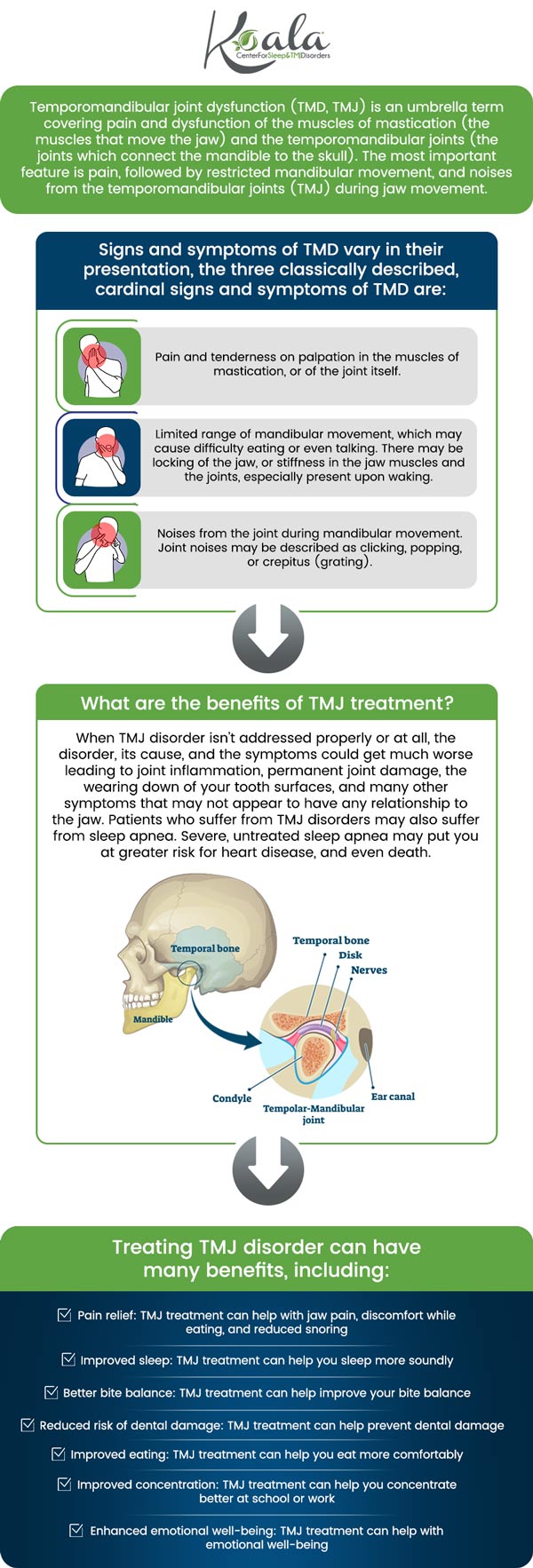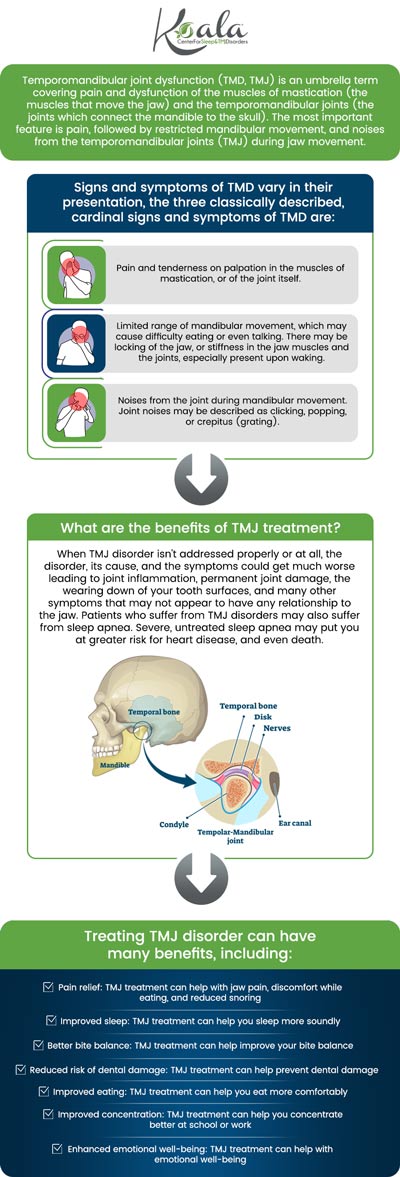TMJ Ear Fullness Q&A
Are you suffering from ear fullness due to TMJ? Come to Koala® Center For Sleep & TMJ Disorders and get comprehensive treatment from our team. For more information, contact us or visit us online to book an appointment. We have convenient locations across the U.S. in Bloomington IL, Peoria/ Dunlap IL, El Paso TX, and Wausau WI.




Table of Contents:
How do you fix TMJ fullness in your ear?
Does ear fullness from TMJ go away?
Can my jaw make my ear feel clogged?
The TMJ, or temporomandibular joint, refers to the set of two joints at either end of the jaw. They connect the mandible (jawbone) to the skull—in particular, to the temporal bones that reside by the ears and temples. Because of the muscles involved in TMJ function, dysfunction with this joint can sometimes lead to a feeling of fullness in the ears. The exact reason for this is not well-documented, but is believed to occur from inflammation and swelling in the muscles around the ears.
The fix for fullness in your ears caused by TMJ disorder depends on the cause of the symptom, the severity of the condition, and other factors. Fortunately, it is possible to both diagnose and treat TMJ disorders, oftentimes with relative ease. As the disorders are easy to misdiagnose and mistreat, it is important to seek professional help if you are suffering from TMD. Further, each TMD will require its own treatment plan; while some cases may be similar, they are never identical.
To relieve fullness in your ears, try physical therapy stretches and exercises for your jaw, to increase its strength and range of motion, and to decrease pain and ear fullness. Over time, this could provide pain relief. Additionally, you can gently massage your TMJ and the surrounding muscles, but be sure to be gentle as too much pressure can damage the TMJ or cause further problems. A hot or cold compress can provide immediate relief, and can be applied for up to 15 minutes at a time.
The best way to find relief from TMJ ear fullness is to visit a dentist who specializes in sleep medicine, such as the ones at Koala® Center For Sleep & TMJ Disorders.
Yes, ear fullness from TMJ disorder should go away as long as the underlying cause of the condition is treated. The pressure and inflammation caused by various medical conditions can severely affect the muscles and nerves around the jaw, potentially leading to TMJ disorder. This could be caused by many things, and can lead to ear fullness, or a feeling or increased ear pressure. While some ear fullness may be diagnosed and treated by an ear, nose, and throat (ENT) doctor, some cases where there are no obstructions or inflammations are attributed to TMJ disorder, and are therefore better treated by a dentist. Call Koala® Center For Sleep & TMJ Disorders to book an appointment with an experienced sleep medicine dentist; we can address your ear fullness, as well as many other symptoms!
Yes, your jaw can make your ear feel clogged. The maxillofacial region, which includes both of the temporomandibular joints, is immensely complex and closely interconnected. The intricate system of muscles, joints, and other tissues of the maxillofacial region make possible countless different facial expressions. This intricacy also means TMJ disorders (TMD) can cause pain and other complications across the face, including the ears. Your ears can feel clogged from TMJ disorder, but you may also experience ear pain.
If you are experiencing ear fullness as a result of TMJ disorder, trust the professionals at Koala® Center For Sleep & TMJ Disorders to provide you with relief. We serve patients from all across the United States, and currently have seven locations: one in El Paso, TX; one in Wausau, WI; one in Bloomington, IL; and one in Peoria – Dunlap, IL. Schedule an appointment at any of our locations today to receive top-level care from experienced TMJ disorder specialists. We look forward to serving you!

Additional Services You May Need
▸ KoalaKIDZzz®
▸ Sleep Apnea
▸ Snoring
▸ TMJ Disorder
▸ Fatigue
▸ Sleep Disorders
▸ Weight Loss
▸ CPAP Alternative
▸ Oral Appliances




